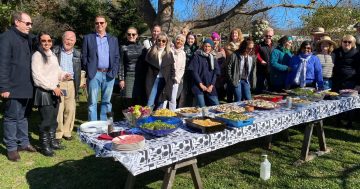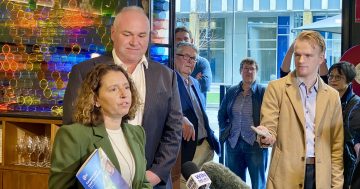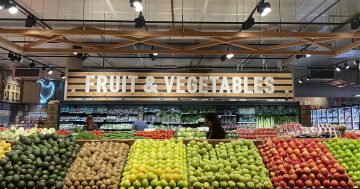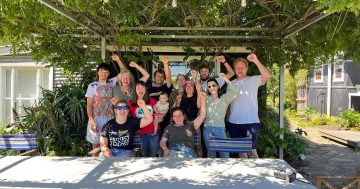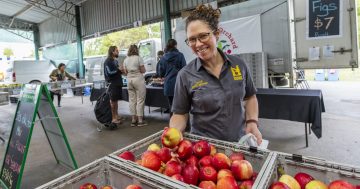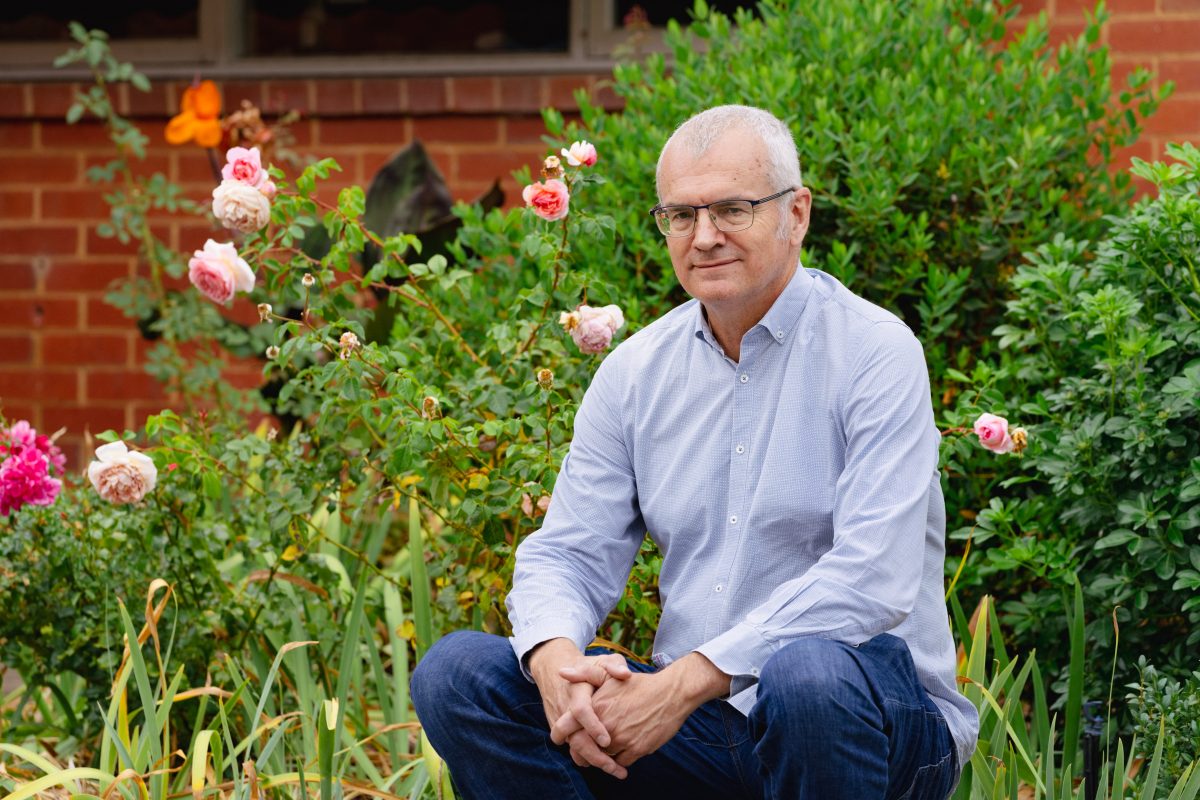
Regional Development Australia ACT CEO Michael Claessens is seeking solutions to shore up Canberra’s food security. Photo: Liv Cameron.
The fragility of Canberra’s food security came to the fore when the COVID-19 pandemic and natural disasters interrupted supply chains and impacted Australian crop production and food processing.
About 95 per cent of Canberra’s food is sourced from outside the region, and experts say it’s time for individuals, businesses and the government to take steps to shore up the city’s food system.
As the CEO of Regional Development Australia ACT and initiator of the Canberra Region Food Collaborative Executive, Michael Claessens is among those leading the charge to ensure the nation’s capital can keep enough food on the table.
He says future interruptions, caused by floods, bushfires, biosecurity risks and virus outbreaks, can “come out of the blue at any time”, and Canberra is not in a good position to cope with food shortages.
“What is needed is a local food buffer to smooth out those disruptions – an insurance policy against disease and disasters which climate and food experts consider will be more common over time,” Michael explained.
“Canberra is a modern city, where access to fresh food is mostly reliable, and I think people received quite a shock when the supply chains were cut off and there was a shortage of some products.”
He says there’s the potential for more food to be produced in the region, and there’s a lot that can be done by ordinary people, as well as businesses and government organisations to empower local producers to grow and process more food.
“What we’re suggesting is a sober assessment of the potential risk to our local food supply, and to start to build up an approach that’s a bit like a farmers’ market but on a much larger scale,” Michael said.
“Canberrans need to support our producers so they have the confidence to grow more food. They’re not going to grow it and take it to the markets if no one buys it.”
He said the recent financial challenges faced by the Pialligo Estate and the closure of Canberra’s only milk factory were concerning.
Government procurement into schools and hospitals is one place to start, as well as offering incentives for farmers to increase production and consider diversifying their crops.
“This isn’t industry special pleading, food supply is an essential service like power, education and water, and many governments are starting to take an active interest in galvanising it,” Michael added.

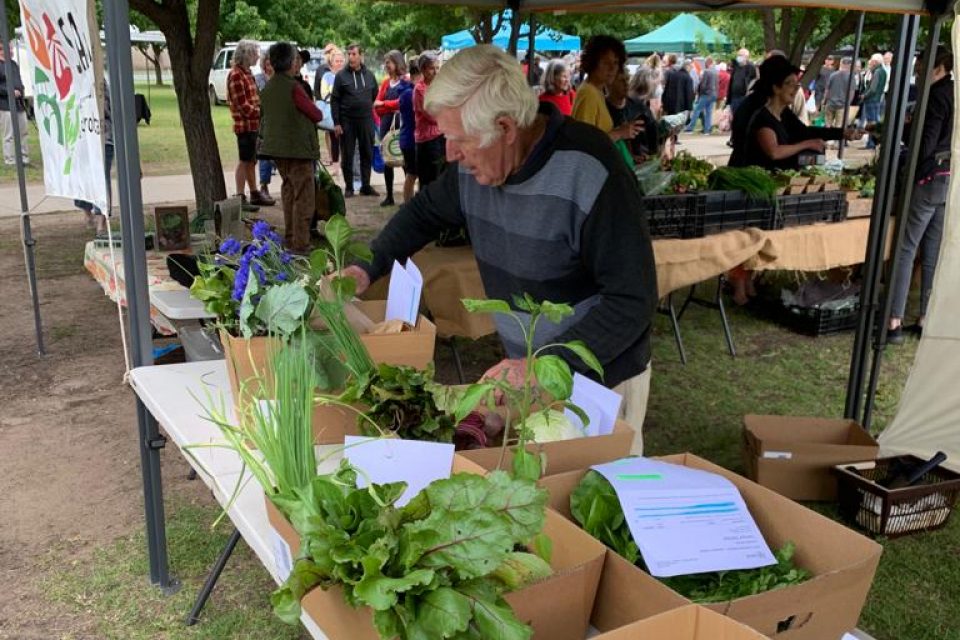
“Canberra, unlike other cities, wasn’t settled on a major estuary and establishing large-scale food production wasn’t considered at the time, so we need to think more about this issue than other cities. It’s time to start investing in innovative farming and food business incubation, and thinking outside the square.
“I think, as a community, we can do better. It’s about encouraging a new culture around how we source food – from our farmers right through to restaurants and catering businesses and even our schools.
With an astonishing 25,000 Canberrans considered food insecure, Michael says access to quality, nutritious food is also important.
“We can’t rely on food aid to bail us out all the time. A stronger local food system can help,” he added.
Growing and storing produce in Canberra “for a rainy day” also makes financial sense and is doable according to local businesses.
“The economic benefits of producing our own food are massive. We estimate that up to 3000 jobs could be generated in the Canberra region over the next five to seven years and, for every job created in the local food system, another 2.14 spin-off jobs would be created as well,” Michael explained.
“And, if we could replace even 10 per cent of our food with local produce, hundreds of millions of dollars would be staying in our local economy, rather than going elsewhere.”
During the Black Summer bushfires, the pandemic and recent floods, other regions in New South Wales turned to local food producers and farmers’ markets to get by, and Michael believes Canberra can learn from communities such as Moruya, Tilba and Lismore.
A member of Moruya’s SAGE not-for-profit community group, Stuart Whitelaw, says over the past decade local growers have built up a food system that works, which is why the region was ready for the sudden lockdowns and transport interruptions.
“You can’t predict when a pandemic or bushfire will strike, and we were prepared,” he said.
“When the trucks couldn’t get through and the supermarkets very quickly ran out of vegetables, SAGE had a diverse range of stallholders that could provide fresh produce to the community.”
Erica and Nic Dibden from Tilba Dairy also stepped up during the bushfires and COVID when the region was cut off and trucks couldn’t get in or out.
The dairy supplied about 10,000 litres of milk to the local community and shops, including Woolworths, when roads were closed during the darkest days in January 2020.
“As a local food grower we have local connections and have built up a strong network, which is very important during times of crisis,” Erica said.
“The fires and COVID restrictions galvanised the importance of very localised food networks and highlighted the fragility of the supply chain.”
Stuart said, while Canberra was a very different growing region to the coast, governments could be doing things like helping farmers to erect growing tunnels to protect produce year-round, as well as training growers.
“It would be great to see more meaningful investment in growing growers, training them and finding land for them. If Canberra wants a more resilient food system, which includes the South Coast, we need investment in this area.”
